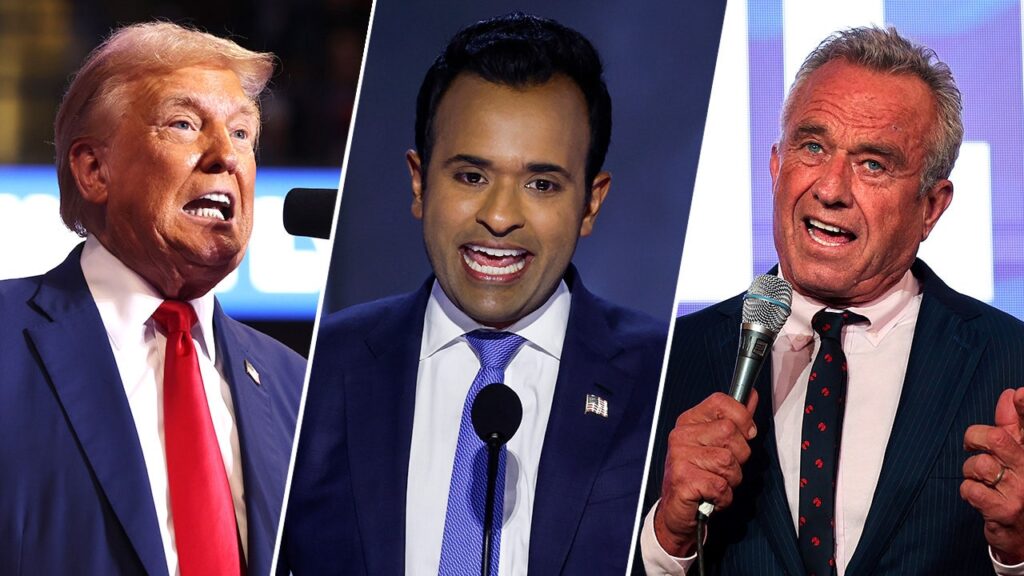Despite all the ambiguities surrounding the Trump administration’s Department of Government Efficiency effort, there is little doubt that the Elon Musk-helmed enterprise is among the most consequential features of President Donald Trump’s second term so far. Largely undeterred by various legal attempts at constraint, Musk and company have pushed ahead with DOGE’s campaign promise of a slash-and-burn rampage through the federal government. Democratic lawmakers have scrambled to form a coherent bulwark of opposition, but lately, a new line of DOGE criticism has emerged from an unlikely source: Republican lawmakers who have begun cautiously raising concerns about how the program is affecting their home districts and constituents.
Capitol Hill conservatives are “growing unnerved” by a sense that DOGE is an “imprecise exercise,” said Axios, as “job and funding cuts are now hitting GOP lawmakers’ districts and states.” All this is occurring amid a “larger conflict” over the White House’s legal authority to “bypass Congress on these decisions.” While most Republican lawmakers are opting for a “quieter approach” rather than frontal criticisms of Musk and the Trump administration, their anxieties “underscore the clash between shrinking government and parochial interests,” said CBS News.
“Congress can’t do anything except complain about it,” said Iowa Republican Sen. Chuck Grassley during a press call this week. The comment was a “stark admission” that there is “little the GOP might be able or willing to do” despite party members’ growing “discomfort” over DOGE’s impact and effects, Politico said.
Subscribe to The Week
Escape your echo chamber. Get the facts behind the news, plus analysis from multiple perspectives.
SUBSCRIBE & SAVE
Sign up for The Week’s Free Newsletters
From our morning news briefing to a weekly Good News Newsletter, get the best of The Week delivered directly to your inbox.
From our morning news briefing to a weekly Good News Newsletter, get the best of The Week delivered directly to your inbox.
It’s “far from a full-fledged GOP mutiny,” said U.S. News & World Report. The “overwhelming majority” of Republican lawmakers have either cheered or “ducked questions” about DOGE’s work. One move that has received particular pushback from Republicans is the limiting of National Institute of Health grants. Those caps are “poorly conceived,” said Sen. Susan Collins (R-Maine), and should instead be a “smart, targeted approach” so as to “not hinder life-saving, groundbreaking research at high-achieving institutions,” said Sen. Katie Britt (R-Ala.).
Republicans are “particularly uneasy” with how DOGE’s cuts have affected veterans who have been “disproportionately affected” by the group’s expansive layoffs, Politico said. And this past week a “coalition” of New York Republican lawmakers offered a “rare sign of pushback” against the White House over cuts to the World Trade Center Health Program which oversees aid for emergency workers who have been medically affected by the 9/11 terrorist attacks, The New York Times said. Although the conservative lawmakers’ reactions began as “more muted” than that of their Democratic colleagues, their outcry became more “vocal” in a sign that “blowback to the firings was widespread.”
What next?
Republicans have been receiving a “deluge of calls from worried constituents,” said CNN, prompting some to begin “testing the waters for what a new era of pushback in a second Trump term looks like.” To that end, some GOP lawmakers are “privately sitting down with representatives” from the largest federal employee union. Others remain “in the dark on what changes or cuts are occurring” and have resorted to using “back channels” to understand the scope and scale of DOGE’s efforts before making any public moves. Republicans have unleashed a “frantic flurry of calls and texts” to members of the Trump administration, resulting in some “some small, scattered successes” such as the rehiring of Department of Agriculture employees involved in tracking cases of bird flu, said Politico.
Ultimately, Republicans are “not without leverage” when it comes to guarding the legislative branch’s financial authority against potential executive branch overreach, said Axios. Trump will need to keep “nearly every GOP lawmaker sated” to pass his budget bill later this year. Given the party’s “razor-thin majority” in the House, the administration simply “cannot afford more than a couple of defections” when the vote comes to the floor.



